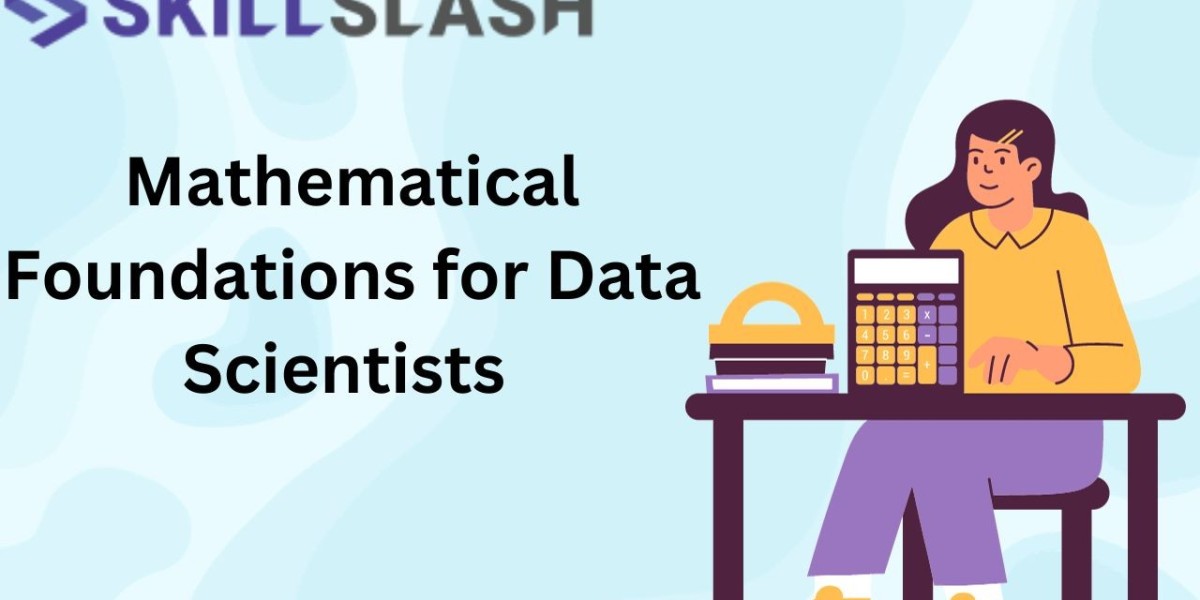In recent years, data science has become one of the most sought-after and promising fields in the digital era. It has the potential to gain valuable insights from large data sets, which can be used to inform decision-making in various industries. However, in order to make the most of this opportunity, data scientists need to have a good grasp of mathematics. Mathematics is the basis on which data science is developed.
This article will look at the most important math concepts every data scientist needs to know.
Why Math Matters in Data Science?
Mathematics is a fundamental component of data science, providing the essential tools and methods for modeling and analyzing data, making predictions, and extracting pertinent information. Here are some of the reasons why mathematics is essential for data science:
1. Data Modeling: Mathematical models are used by data scientists to explain what's actually happening in the real world. They can be used to predict stock prices, categorize images, or even make product recommendations. Basically, they act as a link between the data and what we can actually do.
2. Data Analysis: Mathematics provides data scientists with the tools to analyze, summarize, and visualize data using statistical techniques. It is essential for data scientists to have a thorough understanding of probability distributions and hypothesis testing, as well as regression analysis, in order to draw meaningful inferences from data.
3. Machine Learning: Machine learning algorithms are a fundamental part of data science, as they are based on mathematical principles such as linear algebra, calculus, and optimization. They are capable of learning from data and making predictions or decisions based on them.
4. Data Visualization: Charts, graphs, and visualizations are the tools used by data scientists to convey information. Geometrical knowledge and linear transformations are key to producing impressive data visualizations
The Essential Math Concepts for Data Science

Let's now explore the fundamental mathematical principles that underlie data science:
Linear Algebra
Linear Algebra is the foundation of a variety of data science methods. It is commonly used in machine learning to reduce dimensionality, process images, and make predictions. Matrices, vectors, and matrix-based operations are some of the most commonly used concepts in machine learning.
Calculus
Calculus is really important when it comes to machine learning, especially when it comes to optimization. We need to be able to understand derivatives and how they relate to each other in order to make the best optimization algorithms for training neural networks and more.
Probability and Statistics
Utilizing probability theory, data scientists are able to accurately measure uncertainty and inform their decisions. Statistical techniques such as average, variance, and probability distributions, as well as hypothesis testing, are essential components of data analysis.
Differential Equations
Differential equations play a fundamental role in the modeling of dynamic systems. These equations are utilized in a variety of disciplines, such as physical science, biological science, and finance, to illustrate the transformation of variables over time.
Information Theory
Information theory is a field of study that focuses on measuring the amount of information contained in data. It plays an important role in data compression, feature selection, and other areas where it is essential to understand the content of variables.
Optimization
Optimization is all about finding the best way to solve a problem from a bunch of different options. Gradient descent is one of the most popular optimization algorithms used to train machine learning models.
Graph Theory
Graph theory plays a fundamental role in the analysis of network data, including social networks and transportation systems. Graph-based algorithms, such as PageRank, which are used by Google to power its search engine, are based on graph theory.
Linear Programming
Linear programming, also known as linear programming, is a programming technique used to solve optimization problems that involve linear objective functions and constraints. It can be applied to a variety of applications, such as resource allocation and supply chain management.
Time Series Analysis
Time series analysis is all about modeling and predicting data points that have been collected over time. This is really important for things like predicting stock prices or looking at weather patterns in finance or climate science.
Learning Resources for Math in Data Science
If you are interested in becoming a data scientist and would like to enhance your mathematical skills, there are a number of resources available to you, including:
Online Courses: Platforms like Coursera, edX and institutes offer courses on various math topics, often tailored for data science and machine learning.
Textbooks: Consider classic textbooks such as “Introduction to Linear Algebra” by Gilbert Strang, “Pattern Recognition and Machine Learning” by Christopher Bishop, or “Introduction to Probability” by Joseph K Blitzstein and Jessica Hwang.
MOOCs(Massive Open Online Courses): Platforms like Coursera and edX offer comprehensive data science and machine learning specializations, which include math prerequisites.
Interactive Learning: Websites like Khan Academy and Wolfram Alpha offer interactive lessons and exercises to practice mathematical concepts.
Community and Forums: Engage with the data science community on platforms like Stack Overflow, Reddit’s r/datascience, and Linkedin groups to seek advice and guidance.
In Conclusion, mathematics is not only a theoretical foundation for data science but also a practical set of tools that can be used to gain knowledge and understanding from data. Although the complexity and intricacy of mathematics may appear to be a lot, it is important to remember that these concepts can be learned and applied over time. As you progress in your data science career, it is recommended to dedicate time to mastering these fundamental mathematical concepts. By doing so, you will be able to build predictive models, analyze data, and create algorithms, all of which will benefit from a solid mathematical foundation.







